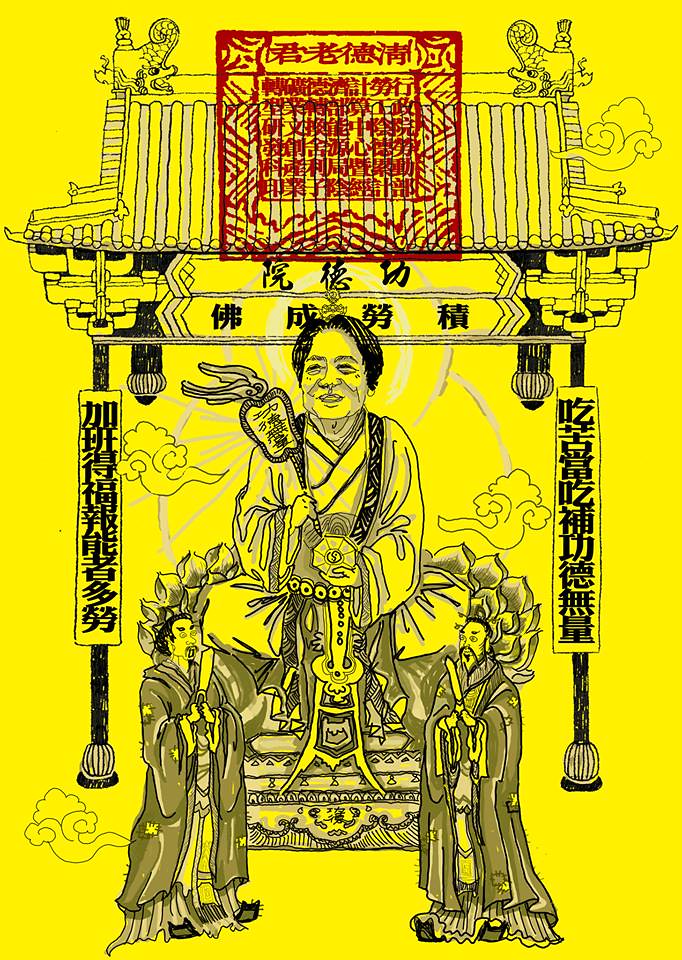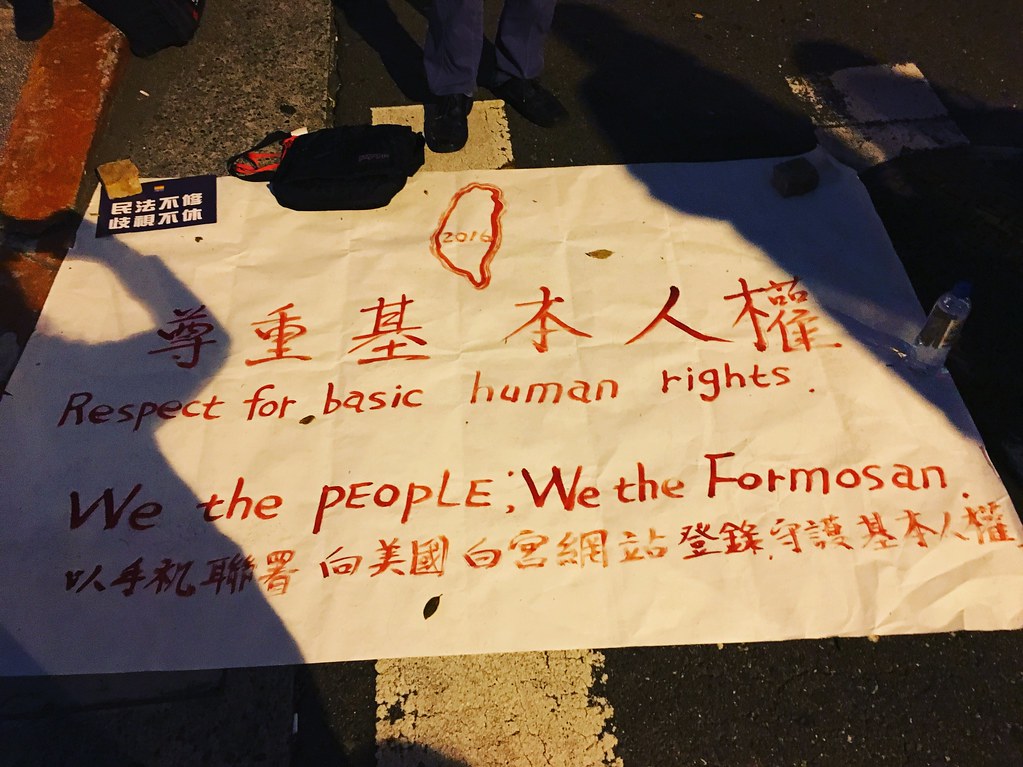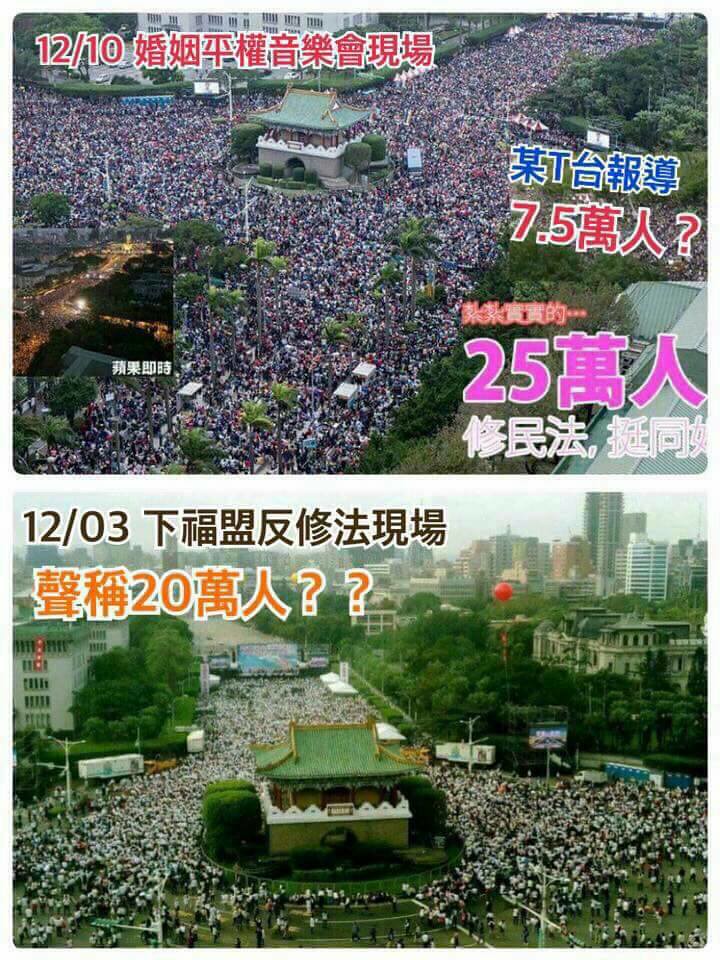
Look, I know I said I was going to take a break, but I'm taking a break from taking a break so here you go.
Still working on my personal junk, you'll hear about it when I'm ready to talk about it. Still working on grad school, just needed a break from that. Don't worry, I'm plugging right along.
Anyway.
I'm not particularly surprised that the DPP has turned around and betrayed Taiwanese labor with their new bullshit changes to labor regulations. (Quick note: the seven public holidays mentioned in this article only snapped back into existence for a year - otherwise, we haven't had them for the entirety of the decade I've lived in Taiwan. They're also not great holidays, to be honest. It's not as though we lost something we'd grown used to over many years.)
They might have a better origin story - I mean, they didn't commit mass murder and pillage and steal from Taiwan for decades after flying and sailing over from another country and settling in like they owned the place - but their ascendancy to the main opposition party of the (even worse) KMT hasn't left them as pure of heart as they might have started out. Sure, they began more idealistically but I don't think anyone can realistically say that they've maintained their dangwai-era vision. They'll line their own pockets, set up their own patronage networks and kowtow to special interests just as much as the KMT will. We've known that for awhile.
I think we've all known for awhile that the DPP is a corruption-filled pustule - perhaps we just told ourselves until recently that all the pus was because they were fighting the KMT infection. But come on, we knew.
Oh but they're not willing to sell us out to China, and they didn't perpetrate a murderous half-century or so of political and social oppression, so they only really look better by comparison. They were always going to bend over and take it from big business. The major difference is that they're pro-independence buttmonkeys who didn't kill people.
Likewise, I'm not even really shocked that they've gone so limp on marriage equality. I'm angry, but I think deep down I always knew that this was in their nature. They were always going to bend over and take it from conservative and Christian groups. Again, the only real difference is that they're pro-independence buttmonkeys who didn't kill people.
They have a better origin story, that's really all at this point. At one point they surely meant what they said with all of that idealism about a better Taiwan. I don't know when things changed, but the spirit of the dangwai who fought for a better Taiwan seems to be dead. Now, they're in it for the power just like the KMT it seems.
I guess deep down, as I can't be surprised, I'm mostly just sad.
Perhaps we always knew that neither of Taiwan's two major parties ever really had the people's backs, but until recently at least we could pretend. We could tell ourselves that if we could just hand the DPP a presidency along with a legislative majority, we could actually get something done. We could transform the country, or at least start down that path.
Now we know that's not true. Now we know there's no major party that really will do the right thing, that will govern as representatives of the people, that will really have our backs rather than letting those with more power than Taiwanese labor (or marriage equality activists and the LGBT community) get up on their backs.
Now we know - there's no one to vote for. Not among the major parties.
I mean, if anything, activism is in the same old rut it always was. We all though things would get better when Tsai's inaugural parade featured that huge sunflower-bedecked float touting the strides Taiwan has made in social movements. And yet we still have a few hundred people turning out for protests until something huge blows up, we still have the same old muddy turmoil, the same old pro-China zealots beating people up and the same old police not responding. The same old turned back from the government. Did the DPP really think that activists would back off because the less-bad party won? That fighting back was something we only did to the KMT because they sucked so hard? That sucking only slightly less hard would be good enough?
So what now? Punishing the DPP - which they roundly deserve - will only hand the KMT a victory. The KMT deserves to be punished more harshly than anyone and it seems they never quite get what's coming to them. We criticize the DPP, calling Lai Ching-te "God Lai" and making fun of him, but the KMT is full of princelings who fancy themselves as gods come across the water from China. This is not a solution.
A buildup of smaller parties? Great. I would love to see the Third Force come together, I'd love to see the two big parties fracture and split and a true multiparty democracy flower. But let's be honest, that's probably not going to happen. I'd love to see the NPP gain support and really challenge the DPP without splitting the liberal vote and handing victories to the KMT - but I'm not sure about either.
At the local and legislative level we can vote for these Third Force parties, but who do we vote for at the presidential level when the DPP has gone down the tubes, and the KMT is already in the gutter?
What I fear is going to happen is this. Tsai will win a second term because presidents here generally do. Ma wasn't punished for being a terrible president. Tsai won't be punished for being a weak one who seems to have betrayed the people she campaigned to win. She'll muddle along just like she is doing in this term, things won't get better, the DPP will continue to suck, and the KMT will start seeming "not that bad" in comparison.
Of course, they are so much worse. But that's not how I think the electorate, sick of 8 years of DPP bullshit, will see it. They'll see it as a "change", and will be willing to give the Chinese princelings another go-'round.
This doesn't mean that Taiwan will suddenly swing pro-China. I don't see that happening again. The conditions for Taiwanese identity to remain strong and even grow are still there. I just see a lot of light blue and green people who aren't as politically attached to "Taiwanese identity" decide that they can preserve their support for it while still voting blue. You know, just like they did when they voted for Ma. You know, deciding that their love for Taiwan can exist under a KMT leader, or that civil society will keep that leader in check. They may forget what happened the last time they thought that.
And in 2024, blammo. We'll be back to the same old bullshit from the KMT.
We thought it couldn't happen in the US, that the Republicans were dead, and yet look what happened. It can happen here too, even if the KMT's core ideology is dead (one major difference: the Republicans' core ideology only seemed dead).
Yay.
The DPP can do better and needs to do better, but I think it's clear that they won't. What's worse, for now they're impossible to punish. Nobody has our backs, and there's no way right now to force them to. This is what happens in two-party systems: no matter their origins, both sides slowly morph into a giant douche fighting a turd sandwich for your votes.
The NPP also needs to do better - this could be their moment, and they have captured it to some extent - Hsu Yong-ming is my new hero - but they need to really grab this dragon and ride it. Get those labor votes and get them now. Do it while the KMT is still in shambles. Don't let those apolitical votes turn light blue again. They need to hold it together and get those votes right now so that some of their younger leaders can gain experience to assume the mantle before the party's momentum withers and their base goes with it.
But - Hsu's filibustering aside - if that were happening we'd see bigger turnouts for these protests, and we're not. We're not seeing enough public calls to action from the NPP - we're seeing Freddy Lim talking about how "useless" the old Tibetan and Mongolian Affairs Committee was (which may be true, but I don't know that he's asked Tibetan refugees, perhaps, what they think of it?). We've got Huang Kuo-chang worried that he's going to be unseated in a few days. We've got former Sunflowers trying to encourage people to turn out, but no big names in youth activism really leading the charge (to be fair, some can't right now). We've got the DPP shouting "your Sunflower movement has collapsed!" and the Third Force not responding in a way that's proving them wrong.
Hsu Yong-ming can't do it alone, but I just don't see the sort of rallying that we need. We need another 400,000 people to go downtown, sit their asses down at Jingfu Gate and tell the DPP what's fucking what, and it's not happening.
Seriously, it feels like 2013 up in here.
I know these things need to evolve naturally, and maybe it'll be a slow burn until the big blowout, but hey, I'm waiting. In any case, what's waiting for us at the other end of that blowout? In 2014 there was a clear path forward: kick out the KMT. Hell, we chanted it in the streets: 國民黨不倒,台灣不會好. What now? 民進黨不行,國民黨再贏?
The dragon seems to be passing the NPP and Third Force right by.
Come on, guys.



